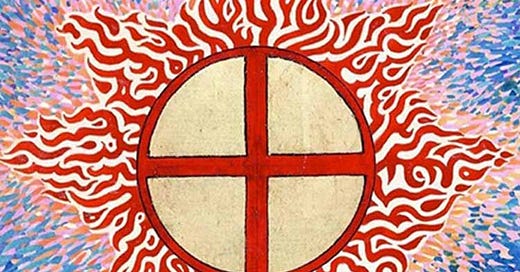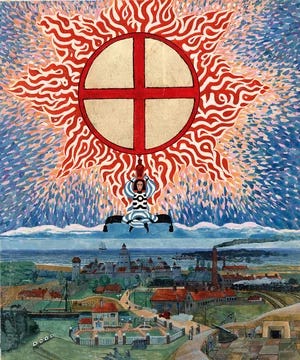Therapy failed to replace the Sacrament of Reconciliation (pt.1)
Freud and Jung's genius could not improve upon the well-refined practice of Confession instituted 2,000 years ago.
The experiment we call therapy is not only inferior, but outright damaging to both the individual and society.
As is common today, most great contributions inspired by the Catholic church—from modern science to human rights—are reclaimed and repackaged by a secular society. At least since the enlightenment, brilliant thinkers have attempted to detach these principles and practices from their divine roots. As the fresh fruits of traditional religious life fades, the actual consequences of these movements are bearing their own fruit, revealing a pervasive rot.
Therapy divorces the liberating process of exposing one’s secrets to another from the sacred which stresses the ego over the rightful focus on God. Excessive attention on the self is responsible for so many of our emotional problems and interpersonal conflict. Sharing vulnerably in the context of the sacred sacrament centers the Great Other—God. When the other in therapy, however, is invoked only in so far as the patient enlists the therapist to side with him and cast blame on some other person (mom or dad) or thing (the patriarchy), the process bears different fruit.
Critics cling to the notion that Confession teaches one that they are bad—a sinner—which misses the real point of Confession, that we are given unwavering understanding, acceptance, forgiveness, grace, and love, from the all-powerful Parent. We all fall short of our ideals, every one of us. This sacrament acknowledges this common human attribute and encourages us to keep trying.
By what authority does the therapist have to wipe away sin? We attempt a spiritual bypass by inviting the patient to dump their problems on the therapist in exchange for a comforting comment which might provide instant relief but never uproots the rot in the soul the way a representative of the church, anointed by the Holy Spirit, can.
Freedom comes in response to facing your shortcomings in the presence of a priest, honestly considering what led to sin, and attempting to do better next time. How brave, to face that which you rather not see, admit your faults, and commit to doing better. Sure, there are successful, non religious examples of this process (i.e. the 12 Steps of Alcoholics Anonymous), but even they insist that it be built upon a total reliance on God as you understand God.
In the Act of Contrition said following one’s confession of sins, we say:
"…I firmly intend, with your help, to do penance, to sin no more, and to avoid whatever leads me to sin.”
Is this not the best therapeutic advice? It’s not the behavior, or the final act. It’s what leads me to that unwanted action. We agree to focus not so much on the behavior we want to change, but the preceding thoughts and situations that lead us to behave in ways we find objectionable.
Penance is “the voluntary self-punishment inflicted as an outward expression of repentance for having done wrong” (Oxford Dictionary). Again, what better advice for integrating the shadow than, in conjunction with the Spirit, voluntarily taking on a punishment to restore order to one’s life thrown off balance by a previously unacknowledged shadow. Nevermind the effect of such outward expression on the culture.
Therapy fails to replace the Sacrament of Reconciliation because it fails to consciously reconcile us with our Creator after we become separated from Him through sin. Therapy, absent of the Holy Spirit, is not powerful enough to contend with the forces at work in spiritual war.
The brilliant and artistic Carl Jung attempted to bring forth a new dispensation, a way for the individual to fight the spiritual battle directly, and outside of the religious institution. Enough time has passed, however, to officially declare Jung’s project a failure.
Why is therapy insufficient? Because the spiritual realm is too complex for the individual psyche and must be dealt with through a collective symbol and longstanding, communal rituals. Here, we can draw from Jung. Symbols express something beyond words and rituals are strengthened through communal efforts.
If you are stuck in therapy: come home to the Church, confess and be free.





